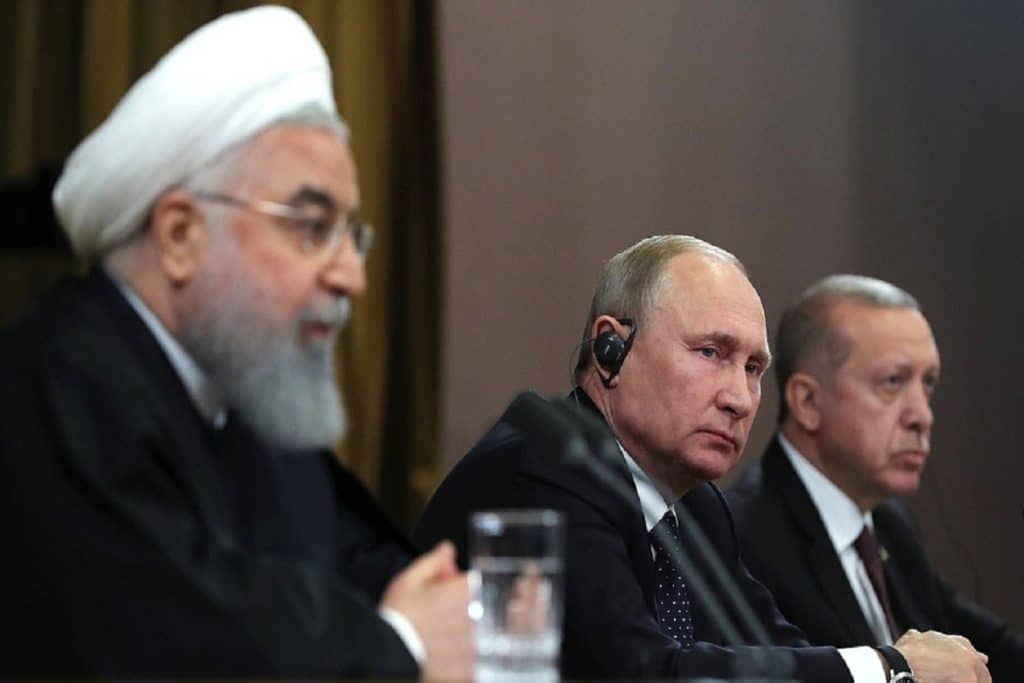By Denis Korkodinov
Turkey and Russia gradually began to occupy diametrically opposed positions in Syria. There are two new alliances in Idlib, one of which includes Tehran and Ankara, and the other of Riyadh and Moscow. Changing the configuration of forces in this region may affect the development of the Syrian crisis.
According to preliminary data, the territory of northern Iraq was not the only one where the Turkish leadership, together with the Ayatollah regime, agreed to organize a military campaign. Special attention will be paid to the northern part of Syria and, in particular, to Idlib. Meanwhile, Moscow and Riyadh, which provides support to a number of Arab tribes in northern Syria, and in particular, the Shammar tribe, intend to conclude an agreement according to which official Damascus and the SDS could establish a cease-fire.
It is worth noting that one of the reasons for the rapprochement of Turkey and Iran is the transit of “black gold” through Syria. Thus, Ankara helps provide alternative transit routes for Iranian oil. Because of the American sanctions, the Ayatollah regime was deprived of the opportunity to supply oil to Latakia and Tartus, which are the main points of reception of Iranian energy in Syria.
The Turkish leadership has provided Iran with its seaports, capable of accepting tankers with oil, until the direct route for delivering oil from Iran to the Syrian coast has been restored. The government of Bashar al-Assad will compensate Turkey for the costs associated with the transportation of Iranian oil through the territory occupied by armed formations beyond the control of Damascus.
In turn, Moscow is negotiating with Saudi Arabia so that Riyadh will influence the groups it supports in Syria. This is necessary, first of all, for Bashar Asad, whose troops have suffered badly from clashes with pro-Saudi forces. If this deal goes through, Damascus and the Saudis under the auspices of Russia can in fact create a unique alliance that will oppose Ankara and Tehran.
Despite the fact that formally Russia and Turkey agreed to jointly ensure security in the Idlib area, in fact, Moscow’s patience is clearly running out, since the Turks could not force the Hayat Tashrir al-Sham out of the region on time, that is, until October 15, 2018 of the year.
In disrupting the “Sochi deal” by Idlib, Ankara blames the Asadites, who regularly attack militant positions, thereby forcing them to put up armed resistance. As a result, Moscow has to solve the problem almost independently, by shelling the positions of jihadists with its own forces. Russia, which counts on the assistance of the Turks, was not ready for such a turn of events: its military resources in Idlib are running out, while Hayat Tashrir al-Sham does not intend to surrender for a very long time. This pushes the Russian leadership to seek new allies in Riyadh.
In addition, according to a number of sources, official Damascus is also set to cooperate with the Saudis because Ankara supports the Muslim Brotherhood, which in Saudi Arabia, as in Damascus, are recognized as a terrorist organization.
Thus, the positions of Russia, Syria and Riyadh may be completely different from the expectations of Ankara and Tehran. But so far the parties do not intend to openly tear off the currently existing international unions, since this may lead to certain complications in collective security in the Middle East.
(The opinions expressed in this article are solely those of the author and do not necessarily reflect the views of World Geostrategic Insights)
Image credit: President of Russia







